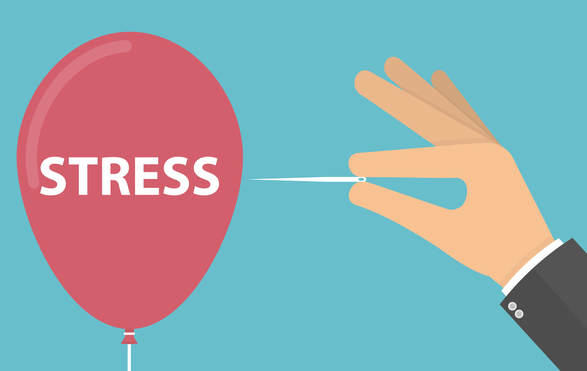This year’s Mental Health Awareness Week, which runs from 14th to 20th May, is focusing on stress. To help you prevent and reduce stress, and to improve your ability to cope with it, here are some tips for creating your personal stress management toolkit.
Stress is something we all experience at some point in our lives. It’s a key factor in many mental health problems, yet too often we fail to recognise (or choose to ignore) we’re experiencing it until we reach crisis point.
Stress can be caused by:
- being placed under pressure
- facing big changes
- worrying about something
- not having control over the outcome of a situation
- having responsibilities that are overwhelming
- not having enough work, activities or change in your life
- times of uncertainty[i]
Stress can affect how we feel and behave. It can also create a wide range of physical symptoms, including: panic attacks, muscle tension, difficulty sleeping, headaches, nausea, indigestion, and chest pain.
You can improve your ability to cope with stress by:
1) Managing external pressures – to do this, identify your stress triggers, look for ways to address the cause(s), realistically plan your available time, ask for help and support, and accept the things you can’t change[ii]
2) Developing emotional resilience – to do this, look at making lifestyle changes (e.g. taking up a hobby), look after your physical health, be kinder to yourself, take a break, and build up your support network[iii]
To help you with these, it can be useful to create a personal toolkit of resources and materials.
Your stress management toolkit can be made up of:
- To-do list or task planners
- Time management schedulers
- Communication tips and reminders to be assertive
- A journal (to help track and identify stress triggers)
- Meal planners
- Self-care items (e.g. relaxation colouring books, bubble bath, favourite books, records, recipes etc.)
- Favourite sayings, mottos or quotes
- Memory prompts (e.g. objects or photos of family, friends and favourite places as a reminder of relaxed times in your life)
- A list of hobbies you enjoy doing
- A list of places you enjoy visiting
- Mindfulness meditations
- Sleep hygiene tips (read more about how to sleep better)
- Phone numbers of friends
- A list of support organisations and helplines (e.g. for housing, finance, debt, insurance, work union, student support, addiction, abuse etc.)
- Contact details for your GP
-
Contact details for a therapist (here are my contact details)
- Anything else you find helpful!
As well as helping to improve your ability to cope with stress, regularly using your stress management toolkit can help you to identify triggers and prevent stress before it occurs. The result: improved mental health and wellbeing.
[i] Mind, How To Manage Stress: What causes stress?, Available: https://www.mind.org.uk/information-support/types-of-mental-health-problems/stress/causes-of-stress/#.Wu7iJ8gh2gQ
[ii] Mind, How To Manage Stress: How can I deal with pressure?, Available: https://www.mind.org.uk/information-support/types-of-mental-health-problems/stress/dealing-with-pressure/#.Wu7mxMgh2gQ
[iii] Mind, How To Manage Stress: How can I be more resilient?, Available: https://www.mind.org.uk/information-support/types-of-mental-health-problems/stress/developing-resilience/#.Wu7mxsgh2gQ


 RSS Feed
RSS Feed